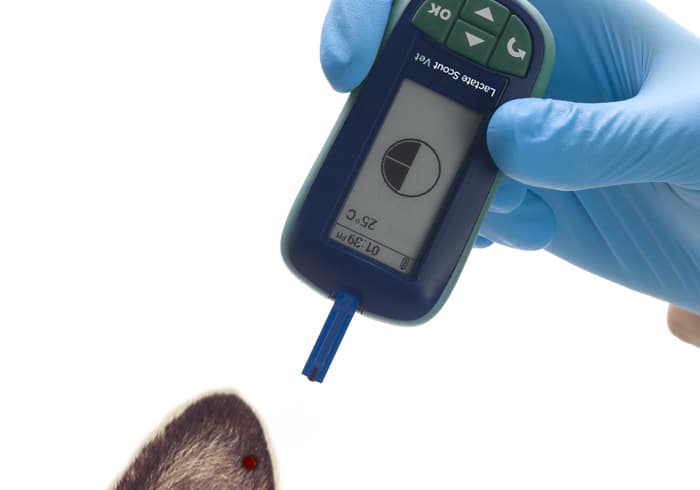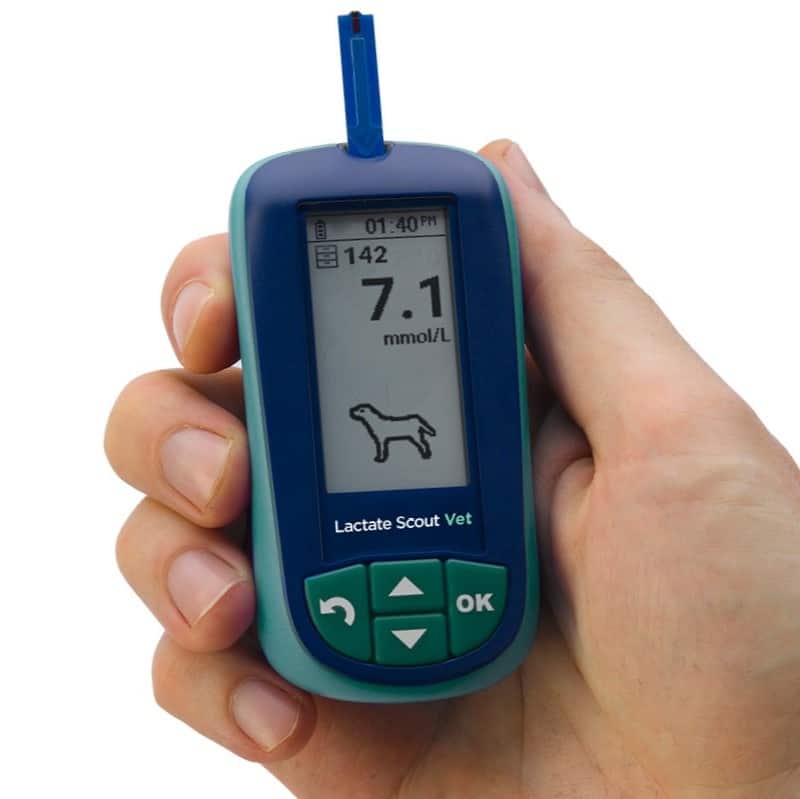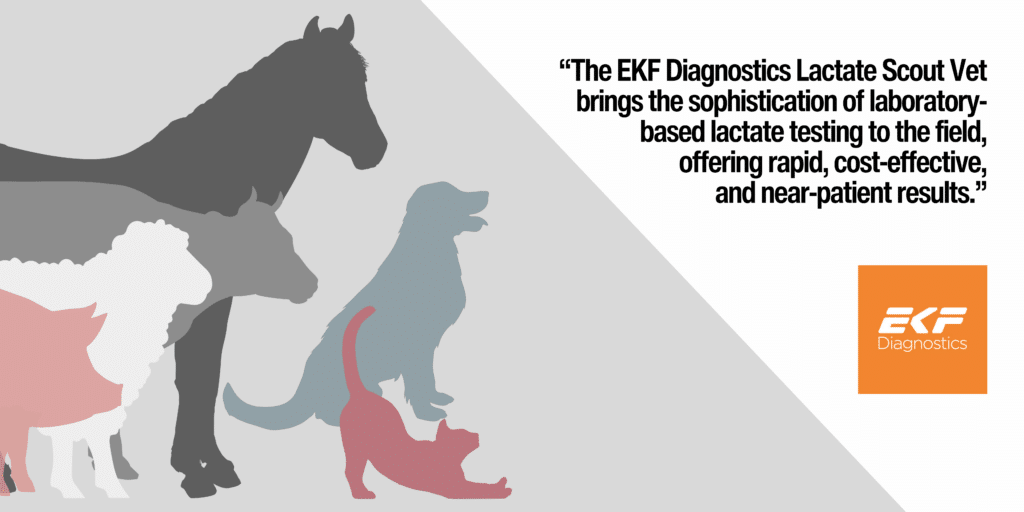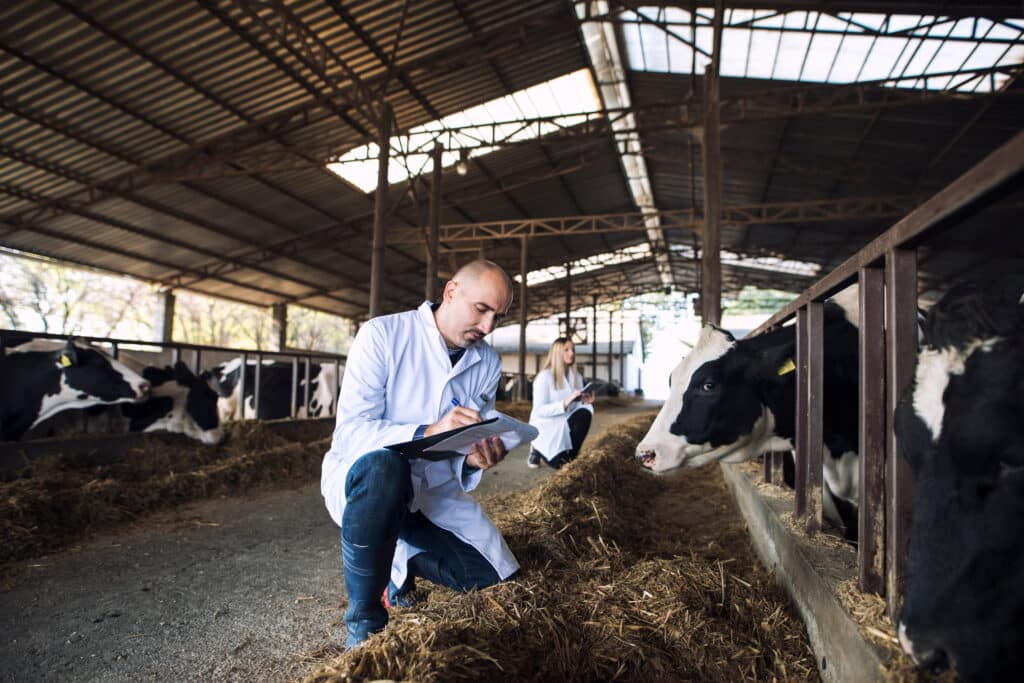In the world of working animals, from service dogs to equine athletes, the demand for innovative approaches to enhance their training and wellbeing is ever-growing. Understanding the physiology of these hardworking animals provides the key to unlocking higher performance levels and ensuring their health remains at the forefront. One such approach is veterinary testing of lactate, a method that has been pivotal in human sports science and is now making waves in the animal realm. The EKF Diagnostics’ Lactate Scout Vet emerges as a leading tool in this field, tailored specifically for our four-legged partners.
The Science of Lactate in Animals
Lactate, often associated with muscle fatigue and the ‘burn’ felt during intense exercise, is a crucial energy source. It’s a by-product of anaerobic metabolism, which kicks in when the body’s demand for oxygen surpasses supply. For working animals, lactate buildup can indicate the intensity at which they start to fatigue, providing invaluable insights into their physical condition and training limits.

Why Measure Lactate Levels?
Monitoring lactate levels in working animals serves multiple purposes. It helps in identifying their anaerobic threshold – the point beyond which lactate accumulates faster than it can be removed, leading to fatigue. By understanding this threshold, trainers can tailor exercise regimes that optimise performance without overexerting the animal. Regular veterinary testing of lactate can also track the animal’s progress over time, offering objective data to adjust training intensity or recovery periods as needed.
Beyond its application in training, lactate testing is a critical tool in diagnosing and monitoring various health conditions in animals:
- Sepsis Diagnosis: Elevated lactate levels in animals can indicate sepsis, a severe and potentially life-threatening condition. Early detection through lactate measurements allows for timely and potentially life-saving interventions.
- Post-Surgical Recovery: Monitoring lactate levels after surgery helps assess an animal’s recovery and can indicate complications, including inadequate oxygen delivery to tissues or ongoing haemorrhage.
- Cardiac, Transplant, and Pneumonia Recovery: After significant medical events such as heart attacks, organ transplants, or severe respiratory infections like pneumonia, lactate levels can help gauge how well an animal is recovering and whether additional care strategies are needed.
The EKF Diagnostics Lactate Scout Vet
For trainers, veterinarians, and animal healthcare professionals based in the UK and Ireland, the EKF Diagnostics Lactate Scout Vet represents a significant advancement in animal health monitoring. This portable device is designed specifically for the veterinary market, for use with feline, canine, equine, bovine, porcine, and ovine species.

EKF Diagnostics Lactate Scout Vet
Introducing EKF Diagnostics’s Lactate Scout Vet, the ultimate tool for precise lactate level measurement in pets and livestock so you can make informed decisions for optimal care.
With user-friendly features and rapid results, it is ideal for veterinarians and animal welfare professionals.
Only 0.2 µl of capillary blood is required with results within 10 seconds, and can store up to 500 results.
It provides rapid, accurate lactate measurements from a small blood sample. The EKF Diagnostics Lactate Scout Vet brings the sophistication of laboratory-based lactate testing to the field, offering rapid, cost-effective, and near-patient results. This is particularly valuable in scenarios where timely decision-making can drastically influence outcomes.
The Lactate Scout Vet is not only user-friendly but also robust and reliable, making it suitable for use in various settings, from vet clinics to fieldwork. Its ability to deliver results within seconds allows for immediate assessment and decision-making, crucial during training sessions or competitions.
Benefits of Using the Lactate Scout Vet in Training Programs:
- Personalised Training Plans: By accurately measuring lactate levels, the Lactate Scout Vet enables the creation of customised training programs that align with the animal’s current fitness levels and capabilities.
- Improved Performance: Understanding lactate thresholds helps in setting the right intensity for training sessions, which can enhance performance while minimising the risk of overtraining or injury.
- Enhanced Recovery Strategies: Lactate testing can guide the development of effective recovery protocols, ensuring animals return to their peak condition faster and with less discomfort.
- Health Monitoring: Regular lactate testing can serve as an early warning sign of potential health issues, allowing for prompt intervention and treatment.

The implementation of lactate testing in small animal veterinary care brings a new dimension to diagnosing and managing a variety of critical conditions:
- Emergency and Critical Care: Elevated lactate levels in small animals can indicate poor oxygen delivery to tissues, commonly seen in cases of shock, trauma, or severe dehydration. Rapid lactate testing allows for immediate assessment and the initiation of appropriate treatments.
- Perioperative Monitoring: During surgical procedures, lactate measurements can serve as a valuable indicator of an animal’s metabolic state. A rise in lactate levels might suggest surgical complications or inadequate perfusion, prompting timely intervention.
- Sepsis and Systemic Infections: In small animals, as in humans, sepsis is a potential killer. Lactate levels can help in early detection and monitoring of sepsis, guiding therapeutic decisions and potentially improving outcomes.
- Chronic Conditions: For chronic diseases such as heart failure or advanced respiratory conditions, lactate testing can help assess disease progression and flare-ups, enabling more precise adjustments to treatment plans.
In large animals, the measurement of lactate has a broad array of applications that significantly enhance the ability to assess and respond to various conditions:
- Neonatal Health in Cattle: Lactate levels are a straightforward metric for evaluating the severity of neonatal conditions such as diarrhoea, respiratory diseases, and abomasal displacement. For instance, high lactate concentrations can indicate significant distress and the need for urgent intervention.
- Labour and Delivery in Calves: The correlation between lactate levels and the APGAR scoring system for new-born calves is particularly noteworthy. Calves that require assistance during delivery, a condition known as dystocia, typically exhibit higher lactate levels, signalling potential complications and the need for immediate veterinary attention.
- General Health Monitoring: The ability to measure lactate on-site without the need to transport samples to a lab is a game-changer for veterinarians and farmers. It ensures that accurate assessments are made in real-time, right beside the animal, regardless of its location.
A Tool for Education and Empowerment
The integration of veterinary testing of lactate into training programs for working animals is more than just a scientific advancement; it’s a step towards a deeper understanding of animal physiology and welfare. The EKF Diagnostics Lactate Scout Vet not only empowers trainers and veterinarians with accurate data but also educates them on the nuances of animal health and performance. It underscores the commitment to enhancing the lives of working animals through informed, evidence-based decisions.
In conclusion, veterinary testing of lactate, facilitated by the EKF Diagnostics Lactate Scout Vet, offers a window into the physiological status of working animals. It can guide trainers and veterinarians in crafting optimised, health-focused training programs. It embodies the fusion of science and compassion, ensuring our working animal companions are not only high performers but also happy and healthy individuals.
For UK and Ireland customers, the Lactate Scout Vet is a valuable addition to the toolkit of those dedicated to the care and performance of working animals. Its precision, ease of use, and immediate results make it an indispensable asset in the pursuit of excellence in animal training and healthcare.

For more information about our products, contact us using the form below.



